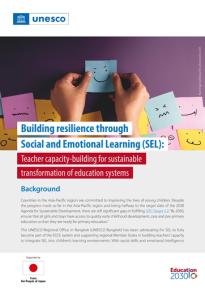Publication
Assessment of Media Development in Bolivia
ISBN : 978-92-3-100196-3
Collation : 105 p.

The UNESCO’s Media Development Indicators study (MDI) in Bolivia made a comprehensive media diagnosis as a democratic discourse platform, current laws related to Communication and Journalism, and the Constitutional warranties to freedom of expression for citizen and journalists. However, private mass media’s associations said that during the research period of study, there was a permanent indictment from government against private media and consider them as a part of the political oposition.
The research made the analysis of national laws and international treaties about Communication and Journalism; the pluralism and media ownership; advertising; media as democratic discourse platform; journalists’ self-regulation; public service media; media levels of credibility; education and the journalists` needs of training; and finally, media`s infrastructure and technological resources.
Aditionally, the study verified that journalists deal frequently with verbal aggressions, threats and physical violence when they are working; besides, they are pushed by publicity and propaganda advertisers. All of these conditions have a negative influence in the journalists`self censorship because of fear they have to be attacked or to lose their job.
Finally, the investigation found that there are few spaces in mass media to reflect the Bolivians’ linguistic diversity; it is rare to hear the voice of the most vulnerable such as: women, children, young people, people with disabilities, elderly or sexual diversity groups.




